Communications and Marketing | Alumni Office

Alexander Barth, Computer Science
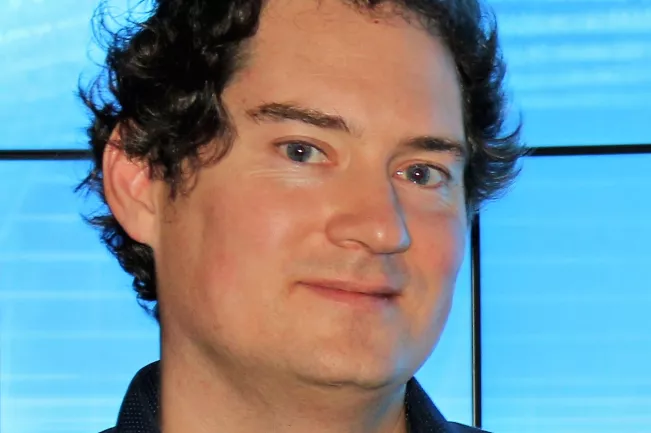
UPDATE: The following text was written in 2017 - sensor technology has developed enormously over the years. Nevertheless, Alexander Barth has remained loyal to his company. Following the split-up of Delphi Automotive PLC, his company is now called Aptiv. There, our alumnus is responsible for the AI/ML Interior Sensing and Cockpit division as Senior Manager
***
A cigar in the driver's hand is a challenge for Alexander Barth. Even thick leather gloves or large pieces of jewelry on the hand are (still) a challenge for the computer scientist with a doctorate. Leather, smoke, metal - they all make it difficult for the 3D camera, which is embedded in the top cover of the car interior and is barely noticeable. This camera is currently one of the most important projects of the computer scientist and H-BRS alumnus. It is designed to clearly recognize the driver's hand gestures and translate them into commands such as "turn up the radio" or "answer the call". It is, of course, absolutely reliable, during the day, at night and at dusk, in arctic temperatures as well as in the desert at lunchtime. And even when the ring finger is adorned with oversized statement jewelry.
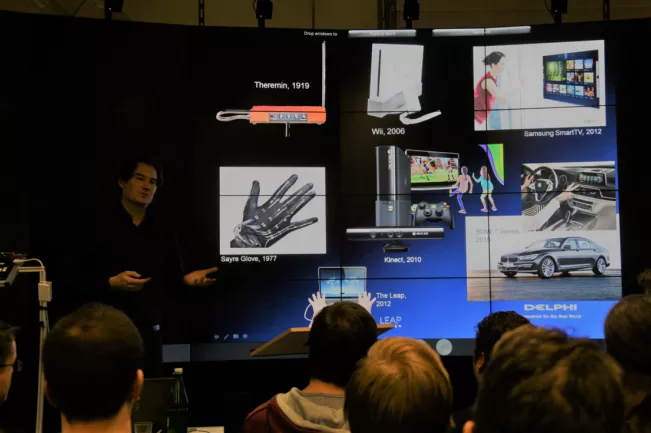
Fundamentals in Sankt Augustin, research in the USA
Alexander Barth is a specialist in human-machine interaction using hand gestures. His business card identifies him as Technical Manager Vision Engineering at the German headquarters of DELPHI in Wuppertal, a major supplier and development partner to the automotive industry, which is currently also driving forward the development of so-called infotainment systems.
Barth learned the tools of his IT trade while studying computer science at H-BRS. He once decided to study computer science due to the media informatics specialization on offer. "I thought I could do something with videos and films later on: cutting, editing for the internet or building websites. But at some point, the subject of image processing grabbed me." Visual computing has long been a high priority at H-BRS and is at the top of the research agenda with the founding of the Institute for Visual Computing (IVC) in 2011. Barth's academic teacher Prof. Dr. Rainer Herpers employed the budding computer scientist as a student assistant and also introduced him to the international dimension of research and development during several stays at the Canadian partner university York University in Toronto.
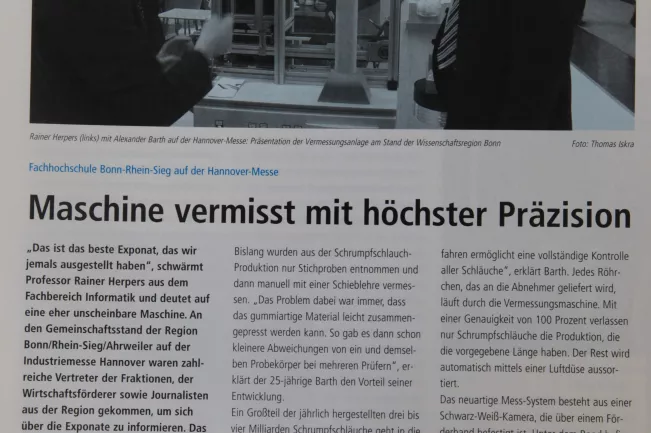
In 2006, Barth mastered his first really big challenge in his Master's thesis: he developed and implemented a new image analysis process for DSG Canusa from Meckenheim, a hidden champion in the region that produces billions of so-called shrink sleeves for the automotive industry: His machine detects deviations in the hose pieces during production and sorts out pieces that are too short or too long. Previously, the special hoses were measured by hand and only on a random basis.
The final thesis won the award for best final thesis 2006 in the field of computer engineering from the Fachbereichstag Informatik der Fachhochschulen in Germany. According to his supervisor, Prof. Dr. Rainer Herpers, who also exhibited the machine with Barth at the Hanover Industrial Trade Fair, it was "the best exhibit we have ever shown".
Barth later spent around eight years researching and developing image processing algorithms for driver assistance systems and automated driving for the Daimler Group, initially during his doctorate in Germany and later in Silicon Valley in the USA.
His move to Delphi in 2014 brought with it a return to Germany. A fortunate circumstance for the H-BRS, as the experienced developer and project manager now takes Master's students under his wing or shares his expertise in lectures at the IVC, as he did in November 2016.
We asked our alumnus what he particularly likes about his work.
The answer: that he comes into contact with exciting new technologies and influences their development. The international environment of his work and the contact with customers and service providers almost all over the world are also major advantages for him. For Barth, these advantages also outweigh the tough demands of his job: "You have to be able to deal with quite a lot of pressure, because that's definitely the case: various projects at the same time, high quality expectations from customers, plus an ambitious schedule. This requires very good organization in order to reconcile quality and schedules. But even if the environment is anything but relaxed - I really enjoy it."
But it does sound very challenging to lead projects to success with changing teams whose members are scattered across several continents and culturally diverse, and who are also very diverse in terms of their expertise and age.
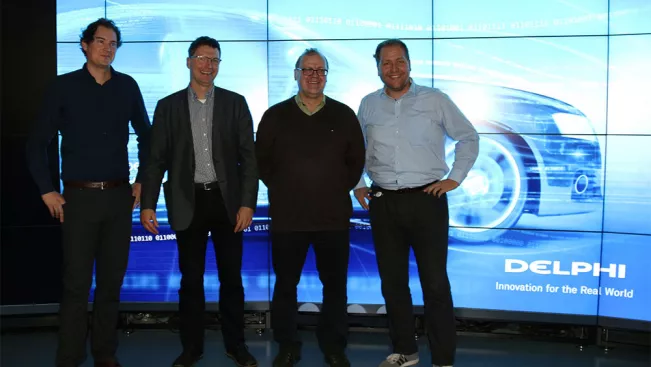
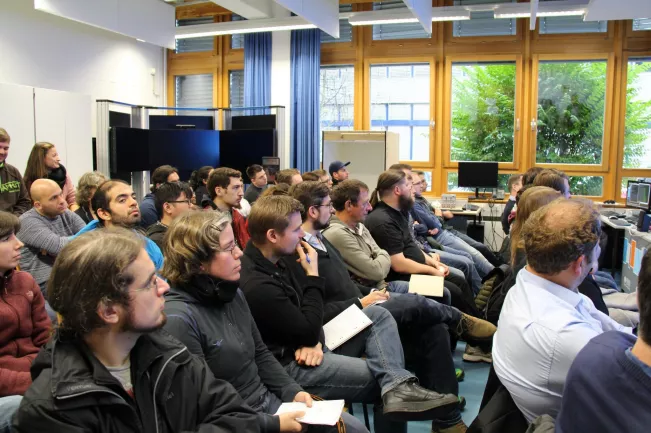
And of course, we also wanted to hear from Barth what experiences and knowledge from his studies were particularly important to him - and what he advises current students. "On the one hand, I received a very good basic education at H-BRS, which gave me all the tools I needed. I also think it's particularly important to 'get your hands dirty' in computer science, i.e. not just downloading highly elegant solutions from the Internet for the tasks, but understanding that it's about finding your own solutions using your own resources." It also makes a lot of sense to get to know different programming languages, i.e. not to limit yourself to the standards of C++ and Java. And it's also part of the job to get to grips with the hardware and its configurations - even if you don't understand all the details. Anyone who develops electronic components should therefore have worked with electronics themselves.
From summer schools and measuring shrink tubing to becoming an internationally active technology expert - we are excited to see what the future holds for our alumnus.
Text: Barbara Wieners-Horst
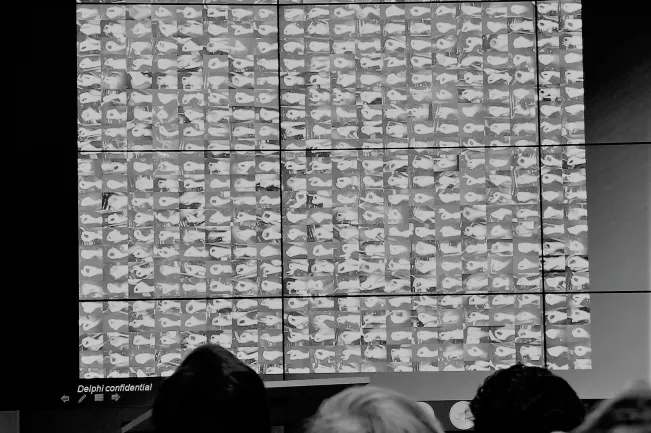
ATTENTION, MASTER STUDENTS: Alexander Barth has already supervised Master's theses at H-BRS. If you are interested in writing a Master's thesis on his topic, please contact Prof. Herpers.